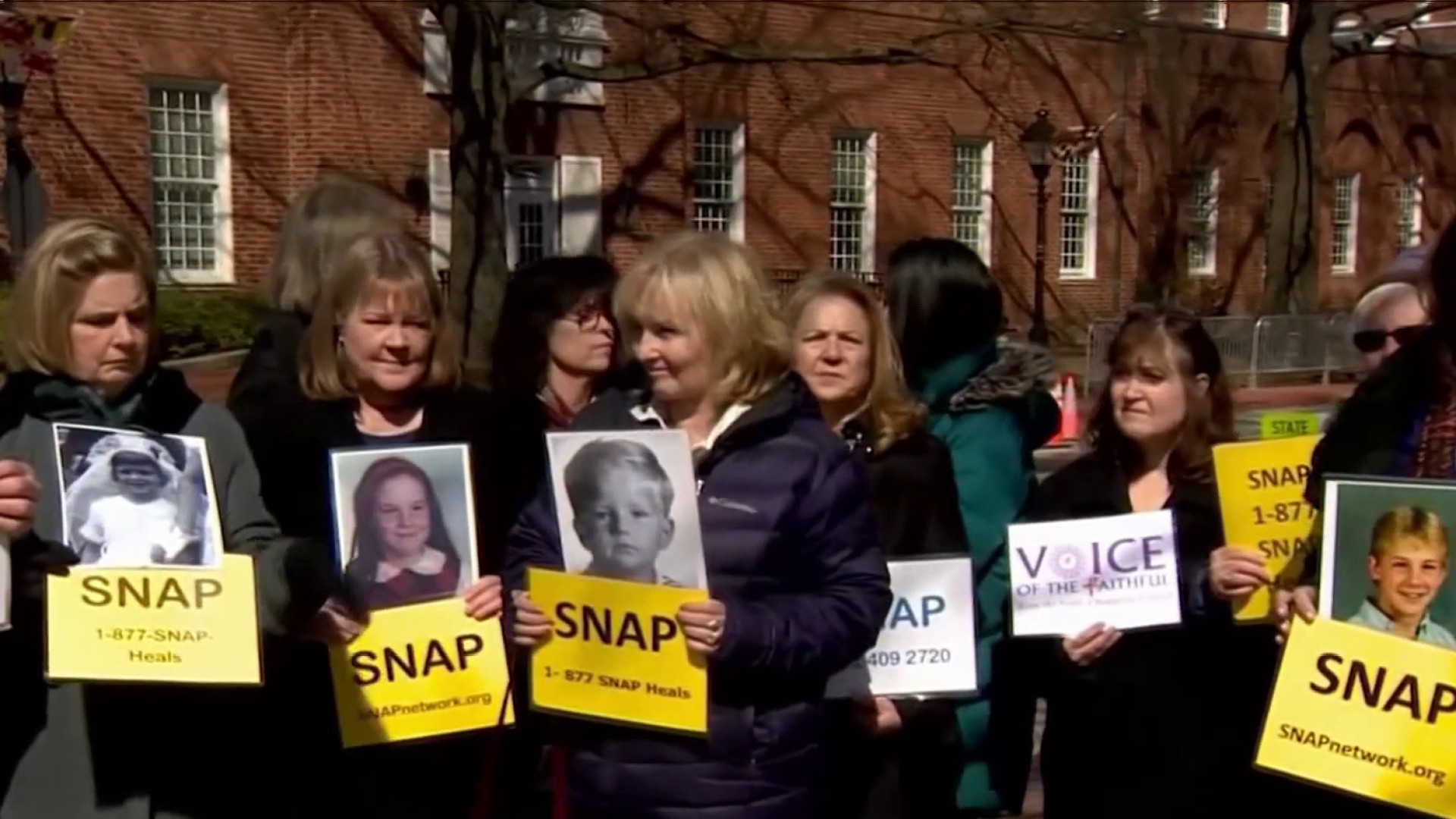New laws on guns, child abuse, fentanyl, sexual assault and much more went into effect in Maryland on Sunday, Oct. 1, 2023.
In D.C., enforcement begins for a law that prohibits businesses from going cashless.
New Maryland gun control laws were approved as part of state lawmakers' response to last year's U.S. Supreme Court ruling that ended a requirement to demonstrate a particular need for a license to carry a concealed gun in public. The laws face a federal court challenge brought by gun rights groups.
For abuse survivors, Maryland's statute of limitations has ended regarding when civil lawsuits for child sexual abuse can be filed against institutions, clearing the way for victims to seek justice in court decades later. As the News4 I-Team reported, survivors are expected to file a wave of lawsuits against the Catholic church. The Archdiocese of Baltimore announced Friday it filed for Chapter 11 bankruptcy reorganization. The step will “allow the archdiocese to equitably compensate victim-survivors of child sexual abuse” while the local Catholic church continues its mission and ministries, Archbishop William E. Lori said in a statement.
We've got the news you need to know to start your day. Sign up for the First & 4Most morning newsletter — delivered to your inbox daily. Sign up here.
Here's a look at DC's law on cashless businesses
D.C. passed a law in 2021 that prohibits businesses from not accepting cash. It is now being enforced as of Oct. 1, as the new fiscal year begins.
Mayor Muriel Bowser said Friday that officials will respond to any complaints received.
“Our expectation is not to fine our businesses,” she said.
The law aims to prevent people from being excluded from some businesses.
"Roughly 30 percent of our residents are un-banked or under-banked, which means they don’t have access to credit," D.C. Council Chairman Phil Mendelson previously said.
Here’s a look at some of the new laws taking effect in Maryland
Where concealed guns can be carried: While lawmakers this year removed the “good and substantial reason” language from Maryland law that the Supreme Court found unconstitutional, Maryland is tightening gun laws to prevent someone from carrying a concealed handgun in certain areas. For example, the new law generally prohibits a person from wearing, carrying or transporting a gun in an “area for children or vulnerable adults,” such as a school or health care facility.
It also prohibits a person from carrying a firearm in government buildings, museums, parks, mass transit facilities, stadiums, race tracks, amusement parks and casinos, Maryland Matters reported.
However, part of the new law was struck down by a Maryland judge on Friday. For now, firearms will still be permitted in certain places, including some businesses that sell alcohol, private buildings and near public demonstrations, according to Maryland Matters.
Gun licensing: A separate law changes and expands requirements and procedures that relate to the issuance and renewal of a permit to wear, carry or transport a handgun. It is facing a federal court challenge in a combined case with the other concealed carry law.
The statute raises the age for qualifying for a handgun permit from 18 to 21, which has come under court challenge in other parts of the country. It also prohibits a permit for someone who is on supervised probation for a crime punishable by up to one year or more in prison, a person convicted of driving while impaired or under the influence, and people who violate a protective order.
In addition, people with a mental illness who have a history of violent behavior are prohibited now from carrying a gun, as well as people who have been involuntarily admitted for more than 30 days to a mental health facility.
Keeping guns away from minors: Maryland is requiring greater storage requirements for firearms. Under the law, a person can’t store a loaded firearm in a place where the person knew or should have known that an unsupervised minor has access to a gun. It’s known as Jaelynn’s Law, named after 16-year-old Jaelynn Willey, who was killed in 2018 at Great Mills High School by a 17-year-old student who used his father’s gun.
Child sex abuse lawsuits: Maryland now has ended the state's statute of limitations for when civil lawsuits for child sexual abuse can be filed against institutions. Victims were already poised to file lawsuit. Officials with the Archdiocese of Baltimore have filed for bankruptcy protection.
Lawmakers included a provision in the law that would put lawsuits on hold until the Supreme Court of Maryland can decide on the law’s constitutionality, if it's challenged on legal grounds.
“We won,” said Teresa Lancaster, who was abused at Archbishop Keough High School in Baltimore in the 1970s. “Finally.”
Hate crimes: A person who is the victim of an act that would constitute a violation of Maryland's hate crime laws is now be able to bring a civil action against the person or persons who committed the act.
Fentanyl testing: Hospitals now are required to include testing for fentanyl as part of drug screening, if such a screening is conducted to assist in diagnosing a person’s condition.
Spousal rape: Maryland has repealed an exemption from prosecution for specified sexual crimes if, at the time of the alleged rape or sexual offense, the person was the victim’s legal spouse.
Police prosecutions: Maryland's attorney general now has independent authority to bring criminal charges against police officers after investigating deaths when officers are involved. The law is an expansion on a package of police reforms approved two years ago in response to concerns about police accountability after the 2020 murder of George Floyd in Minnesota.
News4 sends breaking news stories by email. Go here to sign up to get breaking news alerts in your inbox.
Go here for information on hundreds of new laws going into effect in the state.
Stay with NBC Washington for more details on this developing story.



